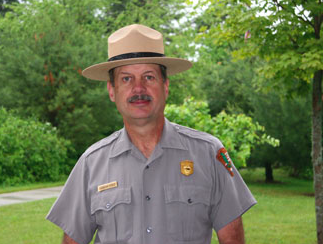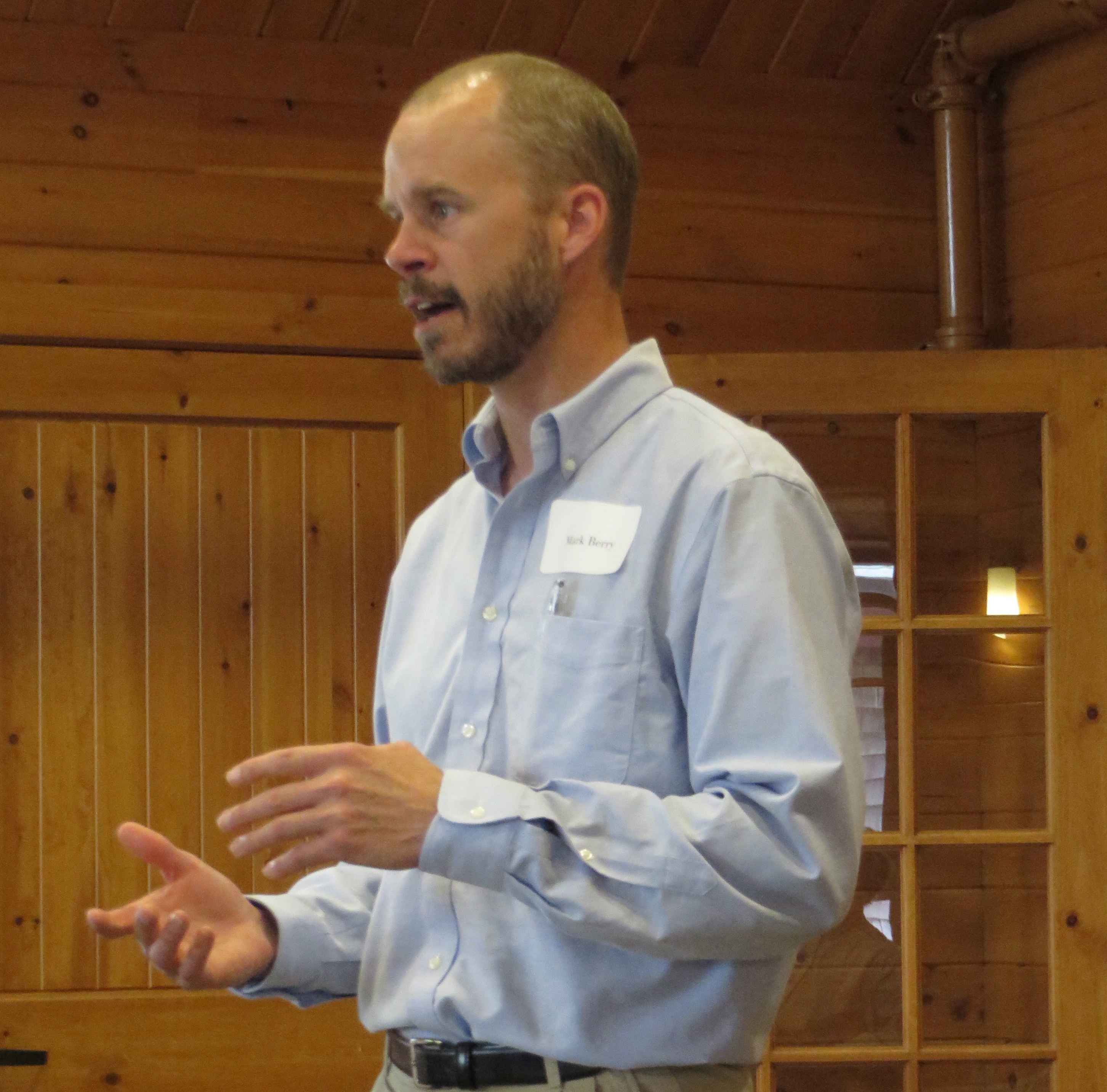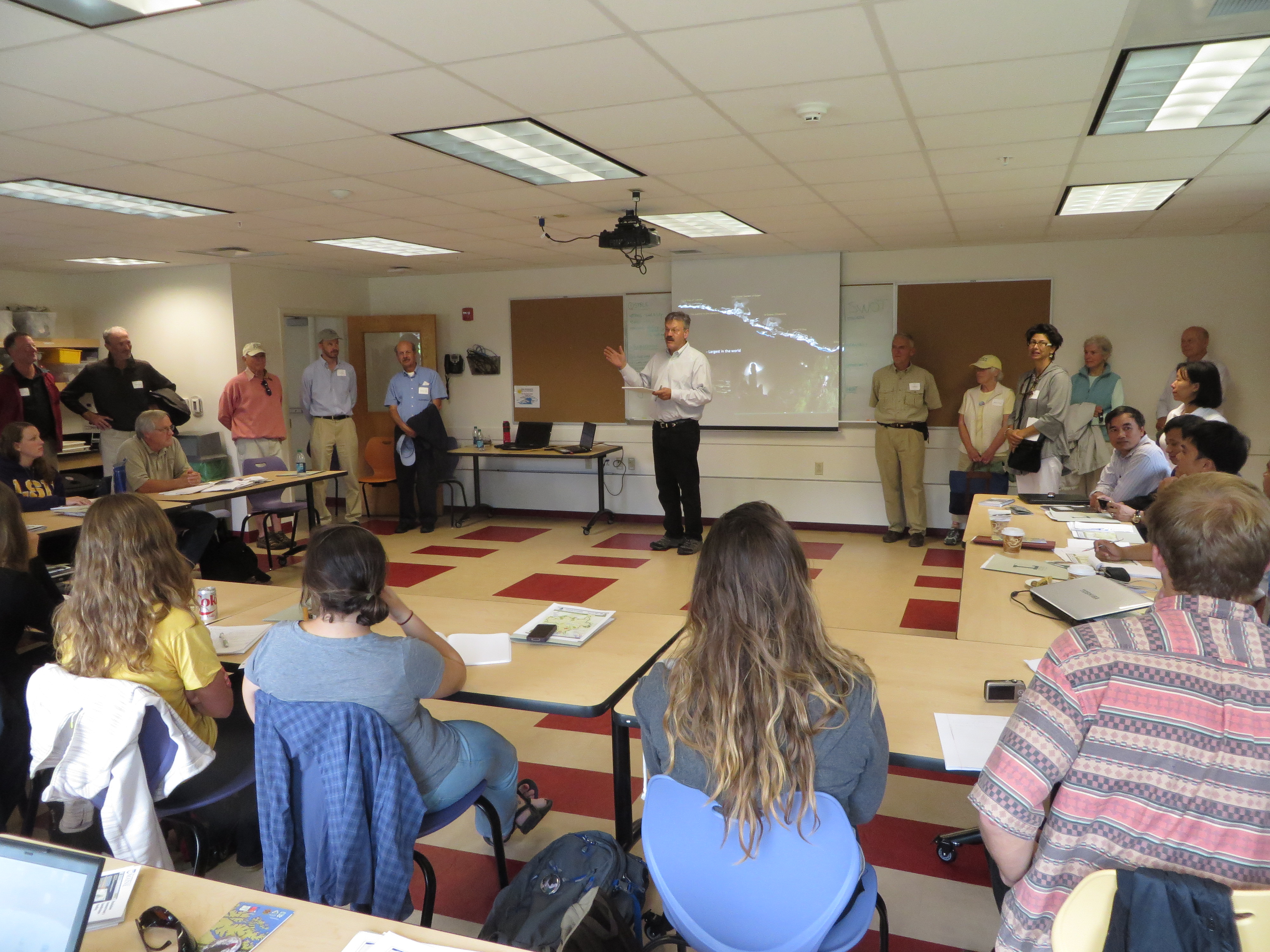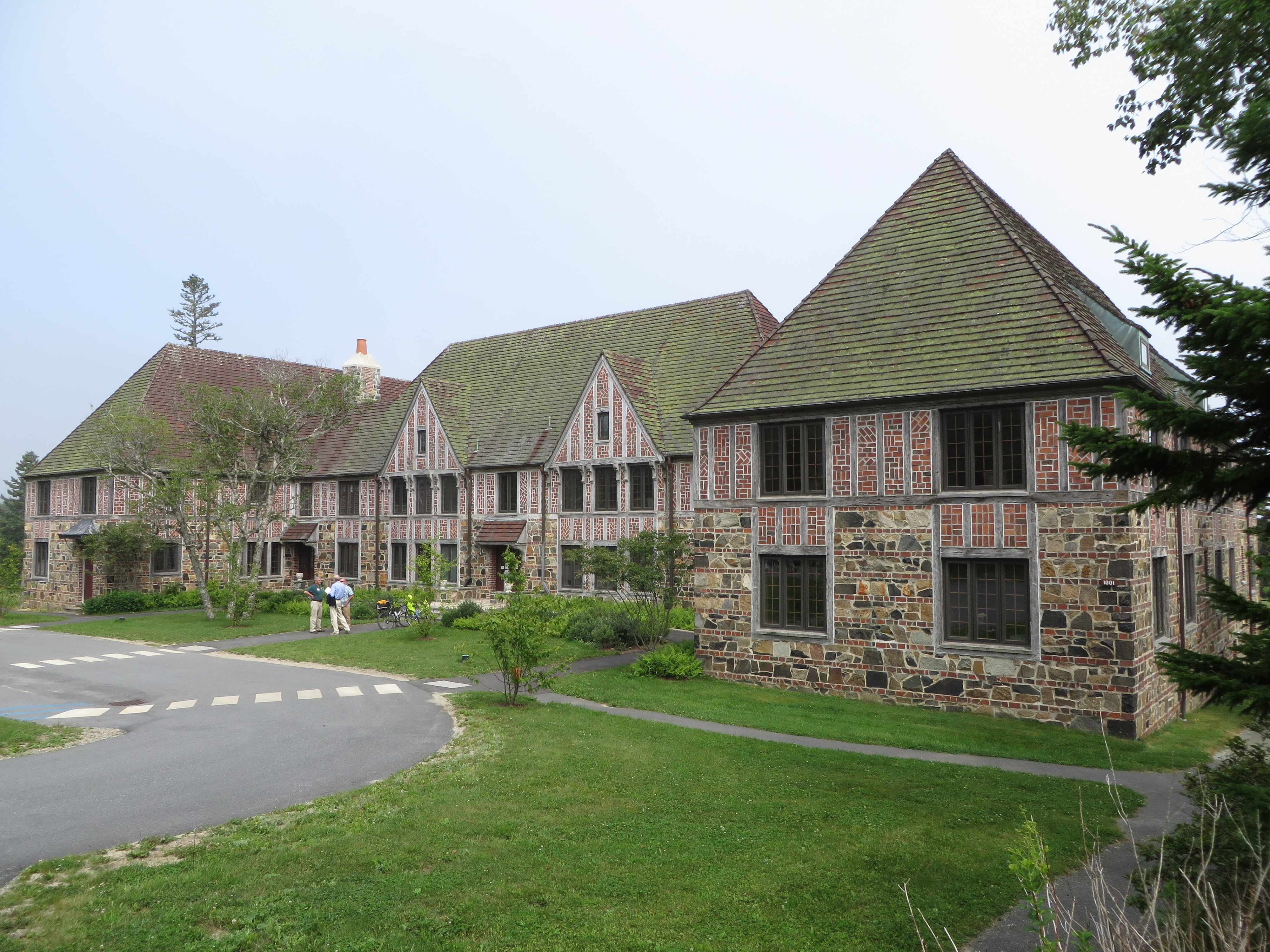Connecting state and local government leaders
Federal stimulus dollars jump-started the Schoodic Institute at Acadia National Park. Now it’s looking to blend public, private and nonprofit funding for the long haul.
WINTER HARBOR, Maine — Here in Downeast Maine, an initiative by conservation leaders stands to offer an example of how public-private partnerships can serve to advance worthy social and scientific goals.
Still a work in progress, the Schoodic Institute at Acadia National Park hopes to bring more jobs and growth to this depressed region while also becoming the largest research station in the national park system and offering ecology education to hundreds of teachers and students.
The growth of the Schoodic campus, fueled by federal stimulus funding, also serves as an example of entrepreneurship in the public sector and demonstrates the risks of committing public capital to a project without the assurance of an ongoing stream of funding to cover long-term costs. At the moment, the Schoodic Institute covers less than a third of its annual budget with program fees, leaving the rest to be funded by government grants and and the generosity of private donors.
Students visit the Schoodic Institute this summer (Photo by Timothy B. Clark / GovExec.com)
The institute is centered around research and education on scientific topics including bird ecology, aquatic ecology, forest ecology and more, often in partnership with the University of Maine and other organizations. It is serving as national headquarters for the emerging practice of “citizen science,” for example by promoting a study of mercury in dragon fly larvae that has engaged students in national parks across the country. One of its key goals is to instill more enthusiasm in children about the great outdoors, as part of a nationwide movement to address “nature-deficit disorder” among tech-addicted youngsters.
By boat, the Schoodic Peninsula is less than 10 miles across Frenchman Bay from Bar Harbor, gateway to Acadia National Park on Mount Desert Island. Its proximity means that it is an important part of the viewshed seen by hikers up Cadillac Mountain and other peaks in the national park. Most of the beautiful views across the bay have been protected since the peninsula became part of Acadia National Park in 1929, and recently, a major conservation easement has protected land adjacent to the peninsula. By car, the peninsula is nearly an hour’s drive from Mount Desert, and it is not nearly as visited as the main parts of the park closer to Bar Harbor.
The opportunity to create the Schoodic Institute arose after the U.S. Navy in 2002 closed a radar and listening outpost known as Naval Security Group Activity Winter Harbor. The Navy facility’s location in the midst of the national park itself offered an interesting look at the role private conservationists have had in development of the park. The listening post was first opened in 1917 at Otter Cliffs on Mount Desert. A Navy historian wrote: “Because of the lack of man-made noise within many miles, and the unobstructed span of ocean water between there and Europe, Otter Cliffs was among the best radio sites along the East Coast and could receive signals from Europe when no other station in the United States could. It had been invaluable in World War I, when radio receivers were rather primitive.”
By the 1930s, the Otter Cliff installation was in poor repair and had become an eyesore in the developing national park. John D. Rockefeller Jr. who donated land and a lovely network of carriage roads to the park, suggested that the Navy move its facility. In the negotiations that ensued, the Navy agreed to relocate its listening post to the Schoodic Peninsula so long as Rockefeller would help build an equally capable listening post. The Navy’s account notes that “The architect's plan for the new station included a beautiful building similar to Mr. Rockefeller's residence at Seal Harbor. Artisans from all over the world contributed to the project. It has been estimated that to build the same structure today would cost $10 million.”
The 100-acre site remained important for the Navy during the rest of the 20th century. Its radar array and satellite transmissions could triangulate the location of foreign warships and offer American ships’ cruise missiles a means of over-the-horizon targeting.
But advancing satellite technologies made the site obsolete by the end of the century, and the Navy decommissioned it in 2002. The decision was a major blow to the Winter Harbor community, as several hundred uniformed and civilian personnel were reassigned to other locations. The town lost more than half of its population, dropping from 988 to 450, according to former Town Manager Tony Barto. Census counts showed it as having declined more steeply than any other community in Maine between 2000 and 2010.
VIDEO: The Schoodic Institute at Acadia National Park
Like many communities afflicted by base closings, Winter Harbor set about to see if the abandoned facility could be repurposed. In anticipation of the base closure, a nonprofit called Schoodic Futures sprang up to work with National Park planners toward establishing a Schoodic Education and Research Consortium on the base. The U.S. Park Service could invest modestly toward that goal. But as with some of its activities, it hoped to attract other funding. So in 2004 the NPS created a nonprofit organization called the Schoodic Education and Research Center “to guide present and future generations to greater understanding and respect for nature by providing research and learning opportunities through its outstanding park setting, unique coastal Maine facilities and innovative partnership programs.”
Schoodic’s Stimulus-Fueled Funding Foundation
Little changed on the remote peninsula until advent of the American Reinvestment and Recovery Act of 2009—the federal stimulus program—in the wake of the 2008 economic meltdown. All of a sudden, many federal agencies were looking to spend money in a hurry, and the National Park Service, with its huge unfunded maintenance backlog, was primed with “shovel-ready” projects. Plans were ready for refurbishing the Navy base, and the stimulus program contributed $9.3 million to help complete the work. Together with park user fees and other federal funds, the park contributed nearly $18 million to the project by the time of the renamed institute’s grand opening in August 2011. The Schoodic Institute at Acadia National Park’s campus now includes classrooms, laboratories and a large auditorium as well as facilities capable of housing and feeding up to 200 people.
Rockefeller Hall (Photo by Timothy B. Clark / GovExec.com)
All of this seemed to be good news, but a significant challenge remained: How to pay for operation and maintenance of the refurbished Rockefeller Hall and other new facilities. The National Park Service could not afford to continue to provide deep subsidies, and programs to generate fees would take time to develop. The state made no direct contributions, though the University of Maine is a significant partner. So the rest would need to come from private contributions.
Raising $600,000 or so a year to support the institute’s $1.4 million annual budget was certainly within reach, although it would place a significant new demand on donors who already support more than 100 501(c)(3) organizations on Mount Desert Island. And it also placed the institute in friendly competition with the largest of the park’s supporting organizations: Friends of Acadia. FOA raises about $1.7 million a year to fund such activities as trail restoration and maintenance and operation of a fleet of buses to cut down on vehicular traffic in the park. FOA is just unveiling a $25 million capital campaign—at the very same time that the Schoodic Institute’s board of directors is making an appeal for $5 million to subsidize the institute’s operating budget and kick-start various programs in the next three years. Overlapping letters and visits are hitting up the same donor community.

Having acted as the key entrepreneur and funder in the Schoodic startup, longtime park Superintendent Sheridan Steele (pictured at right) now has a lot on the line in bringing the project to full fruition. He has made it one of four priorities of his tenure. Acadia National Park spends about $800,000 a year to support the Schoodic campus and programs, notably the Schoodic Education and Research Center, the largest of about 20 National Park Service research learning centers in the United States. It’s a sizeable commitment at a time when the Acadia budget has dropped by about 10 percent to a current level of $7.5 million. The tightening federal budget has Steele making cuts elsewhere, for example in educational services vital to getting young people enthused about nature.
A small share of the $800,000 goes directly toward funding the institute’s budget. With grants from the National Oceanic and Atmospheric Administration, the National Science Foundation and Acadia National Park, the Schoodic Institute raises about $400,000 from government sources. In fiscal 2013, the institute earned $420,000 in program fees. That left about $600,000, roughly 40 percent, to be financed by charitable contributions.

Mark Berry, Schoodic’s new president (pictured at right), is optimistic that programming revenue will ramp up as word spreads of the institute’s capabilities. “It is the private-public partnership that will make or break this effort; we could not do it alone even if our budget was much better than it is,” Steele told GovExec State & Local. “Our goal is to get the facility running on its own and paying its own way with no need for our significant subsidy” from the park’s operating funds.
In a later e-mail, Steele added that the Park Service will continue to pay, and seek grants, for some programs, while also emphasizing the need for “many new partnerships and collaborations.” So government, non-profit and private players will be important to the institute’s success, as is increasingly common among other projects pursuing public goals.
Donors are expected to play an important long-term role. After the current $5 million round of fundraising, the institute plans a larger capital campaign.
So far, the Schoodic Institute has created 42 jobs: eight full-time, 16 year-round but not full-time, and 18 seasonal or with some amount of winter furlough. Its programs are concentrated in the summer months, not during the cold and dark Maine winter. It’s hardly a substitute for the Navy’s contribution to the Winter Harbor economy, but if the institute succeeds in becoming a recognized leader in ecological research and teaching its economic and academic impact will surely grow.
Timothy B. Clark, editor-at-large at Government Executive, is one of several dozen people on a Schoodic Institute advisory council.
Top photo of Schoodic Point by Dan Hanscom / Shutterstock.com; photo of Sheridan Steele courtesy of the National Park Service; photo of Mark Berry by Timothy B. Clark / GovExec.com






